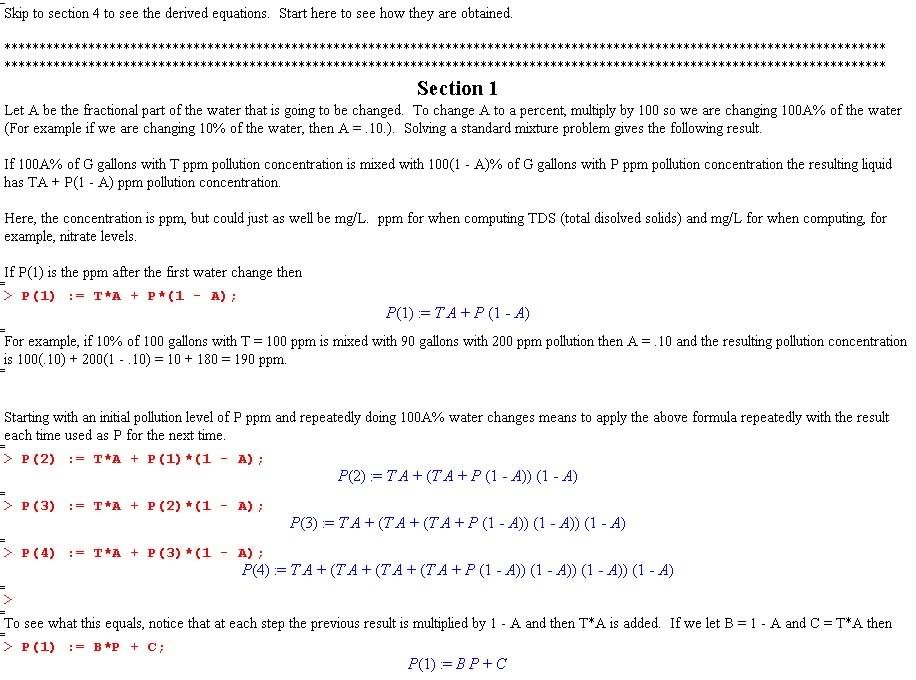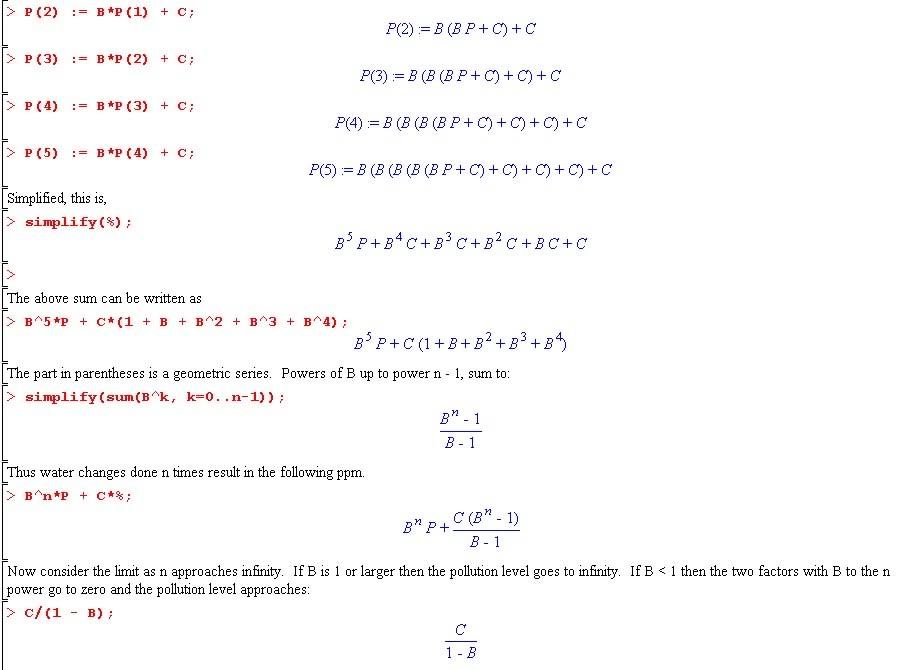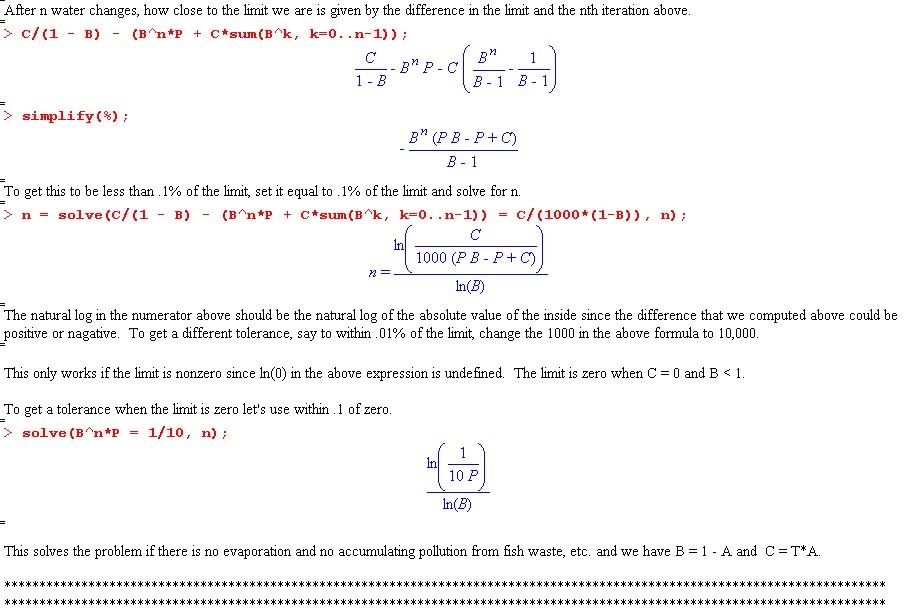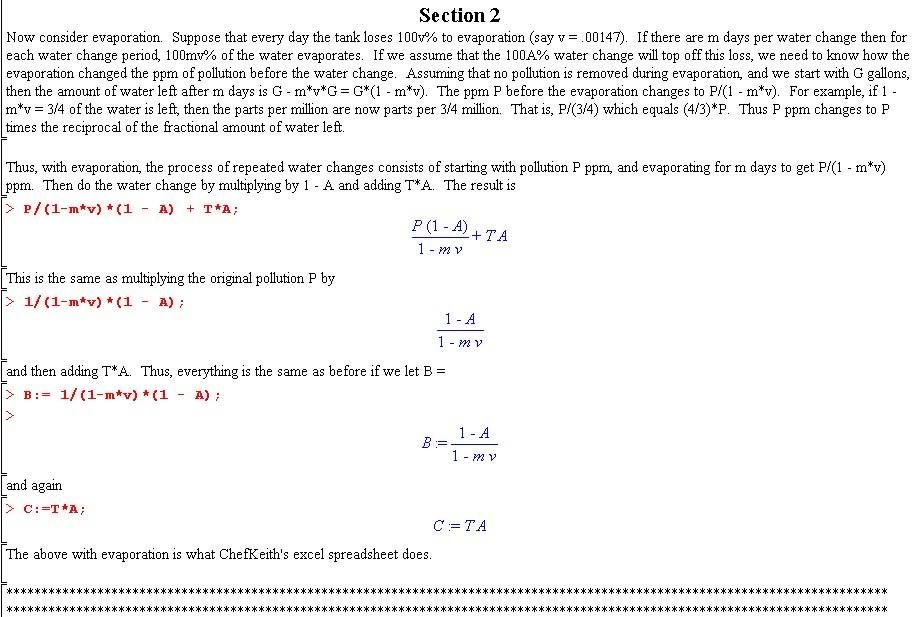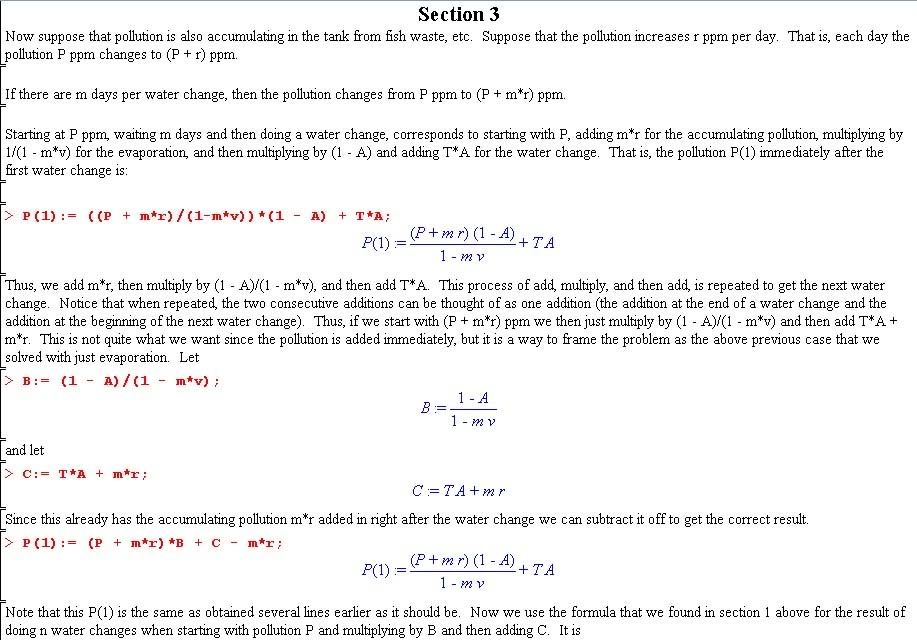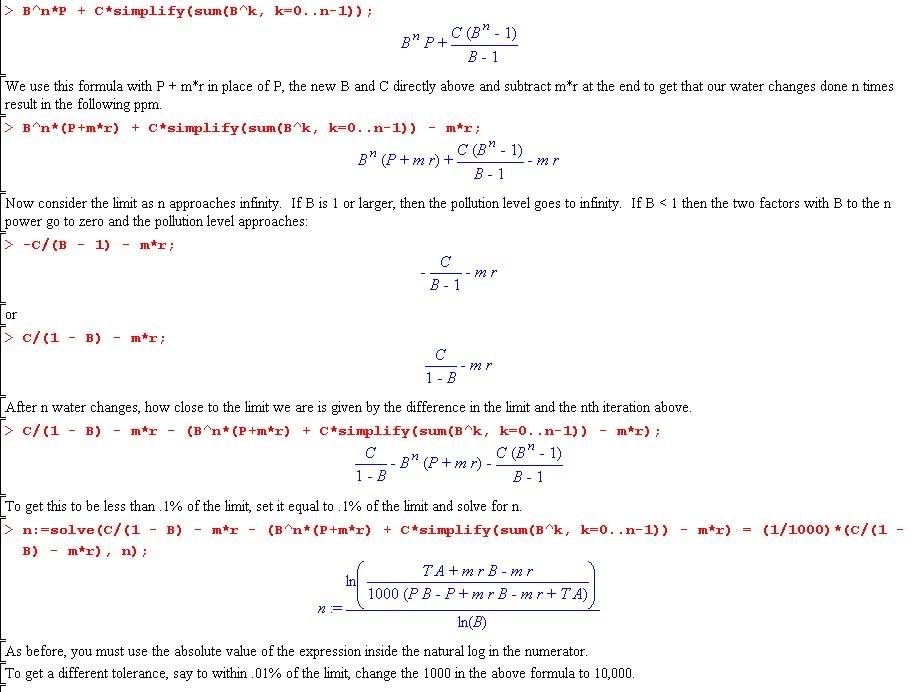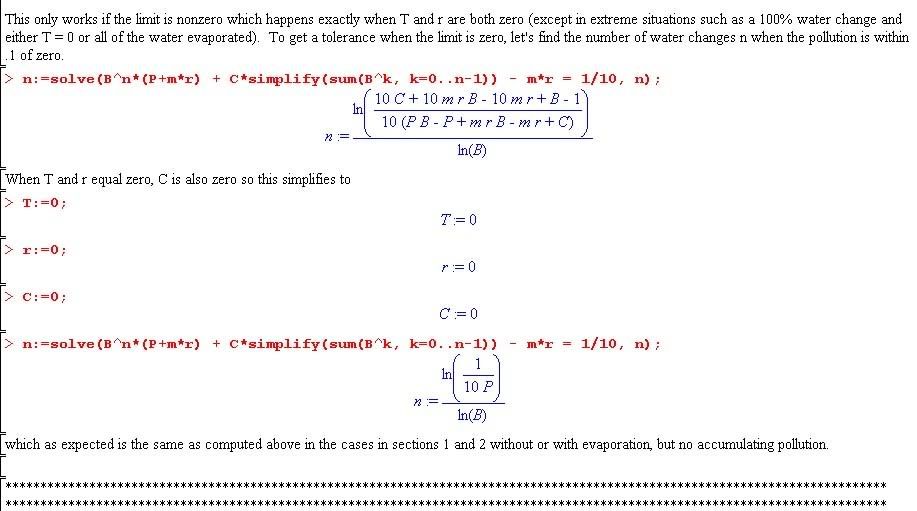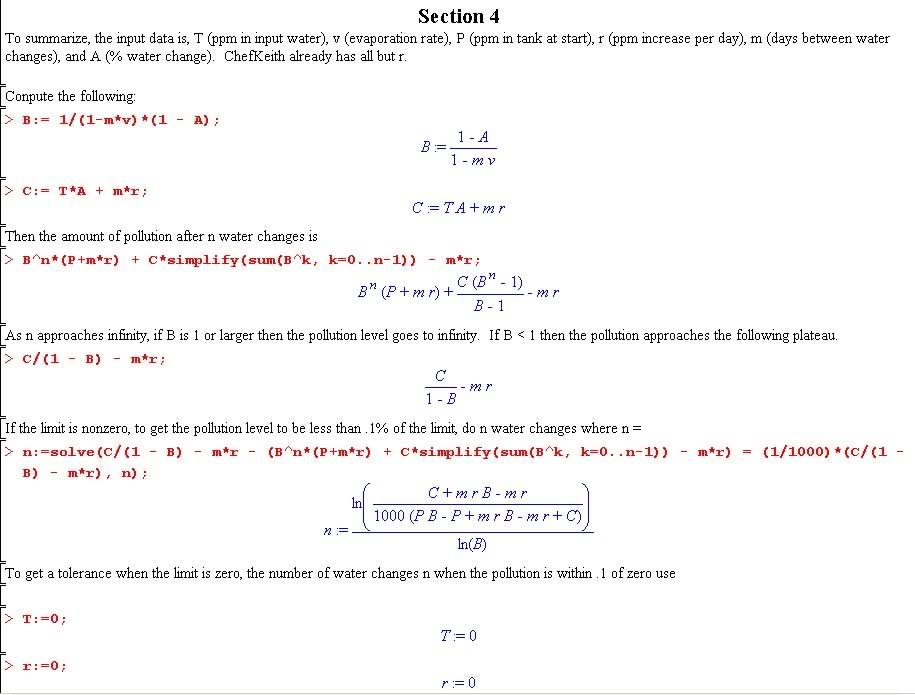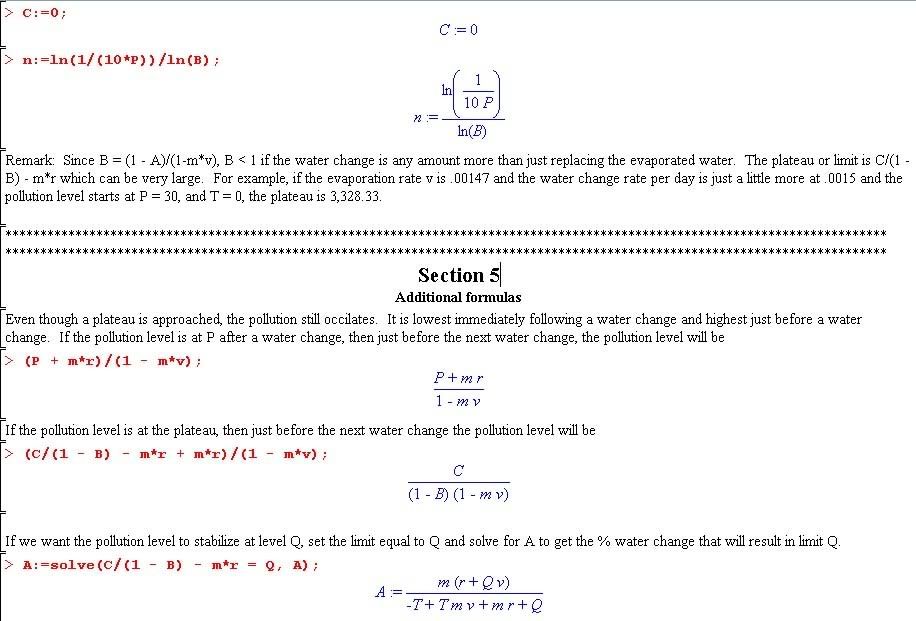For anyone interested, I have edited and updated the derivation of the formulas for the water changes that appear earlier on this thread.
Since I wanted to check everything for accuracy and see that the formulas work, I took the time to add the accumulating pollution option to chefkeith's spreadsheet. Chefkeith, I hope that you do not mind that I have done this. Your spreadsheet is so nicely set up, and works so well, that I was anxious to add this extra pollution accumulation factor to see how it all works. If the accumulating pollution is set to 0, then the results are the same as they were before I made any changes. You may download the spreadsheet at
http://people.consolidated.net/kwolcott ... Wizard.xls
I have turned protection on (tools menu of excel) so that I don't accidentally erase any of the cells which have formulas. The input cells are, of course not protected so that you can put any initial conditions in that you desire. There is no password on the protection, so you may turn off the protection and change any formulas that you wish (for anyone that may have other quantities that they wish to compute).
Remark: If you play with the wizard a bit, you will see that the frequency and % water change that you do has hard to predict effects on the long term results. Some choices may seem reasonable, but over time have a high pollution plateau, and thus are not really very good.
I also added a small section near the bottom that incorporates the two tables that I posted earlier. Thus, for a given water change % and frequency, you can see the required % water change for other frequencies that have the same effect on the amount of pollution. It also shows how much water is used per day for each water change frequency.
If you set the water change frequency at 1 second, it is effectively continuous, so you can see the rate that a continuous drip needs to be in order to be effective and how it compares in water usage to other frequency choices.
You can also enter a pollution level goal and it will tell you the % water change that is necessary to achieve that goal.
Keith

